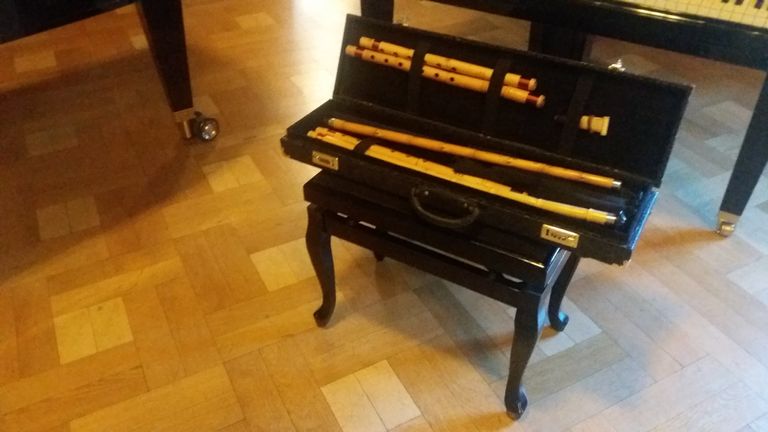
Regards to you all #blurtians ,
Here's a short description and introduction into the ancient world of the egyptian flute, named "kawla".
Here you ca listen a song that i've composed for this amazing instrument, named kawla on our Tribe's album.
The name of the composition is Gnawango.
Lucian Nagy & Balkumba Tribe on Musicoin
https://musicoin.org/track/0xe332076af5dae0bee5013aedd9cb7001c66eedf7
Lucian Nagy & Balkumba Tribe on Vibravid
https://vibravid.io/userprofile/ElBalkumbero
Lucian Nagy & Balkumba tribe on Bandcamp
https://luciannagybalkumbatribe.bandcamp.com/track/gnawango

The kawla is an end-blown flute used in arabic/middle eastern music.
It is similar to the arabic ney and the turkish ney but has six finger holes, while the ney has seven, including one in the back.
The kawla comes in up to nine different sizes, according to the maqam scales that will be used in the music.
The kawla is a egyptian flute that is played by blowing through its end.
The kawla has the fundamental tonal structure customary among the Egyptian folk music community, and the basis for many folk melodies, instrumental or vocal.
The kawla is hollow and has four knots, with six fingerholes in a straight line along it.
The instrument has up to nine different sizes, according to the scale required in a musical composition.
Kawla is most often played today at religious festivals and weddings and it has its origin as a shepherds tool, used to guide their flock.
For this reason the kawla seems to assist in any musical composition that contains a “call-and-response” sequence.
My kawla flutes were build by master Saber Ali from Cairo, Egypt.
Soon i'll post more compositions of mine played on kawla flute.
Enjoy the music dear #blurtians.
I'm curious if people around @blurt.blog would love to see more posts like this one, directed much more to the educational side of the vast platform of music ... if yes ... feel free to ask questions in the comments section or you can open topics on which we should discuss ... about music/art/ethnic modes/ maqam music or any other spectrums in music.
Have a Blessed Time wherever you are, dear #blurtians.
This is the content we came here for.
Regards @jacobgadikian
Thanks for stepping by to read/upvote my blog.
Hope to see you around inside this awesome #blurt #blockchain
Regards
https://luciannagy.com/?page_id=513
Is this the same instrument as on the Expansion EP?
As principle of playing is almost the same, from the point of view of the embouchure but the range is different, the egyptian kawla has only two octaves, and from there are interesting false fingerings to have at least one more octave, when the bulgarian kaval has different fingerings system and also another approache in playing chromatic as well.
Somehow, the egyptian kawla has a much big sound, or fat let's say ... both are different as air texture inside their sound ...
On Expansion i've recorded mainly with the bulgarian kaval ...
Hope you've enjoyed both of them.
Regards @accelerator
https://luciannagy.com/?page_id=513